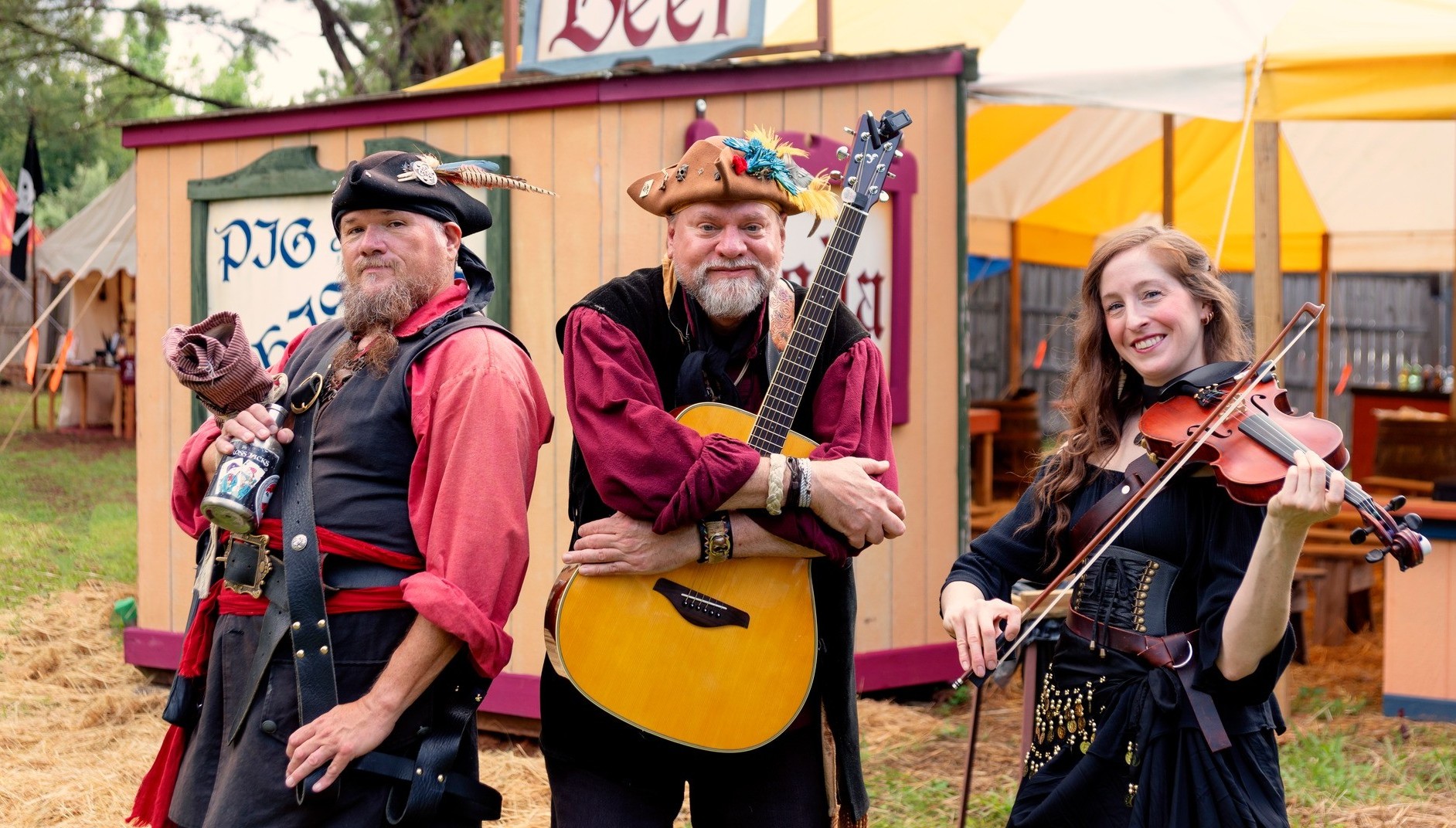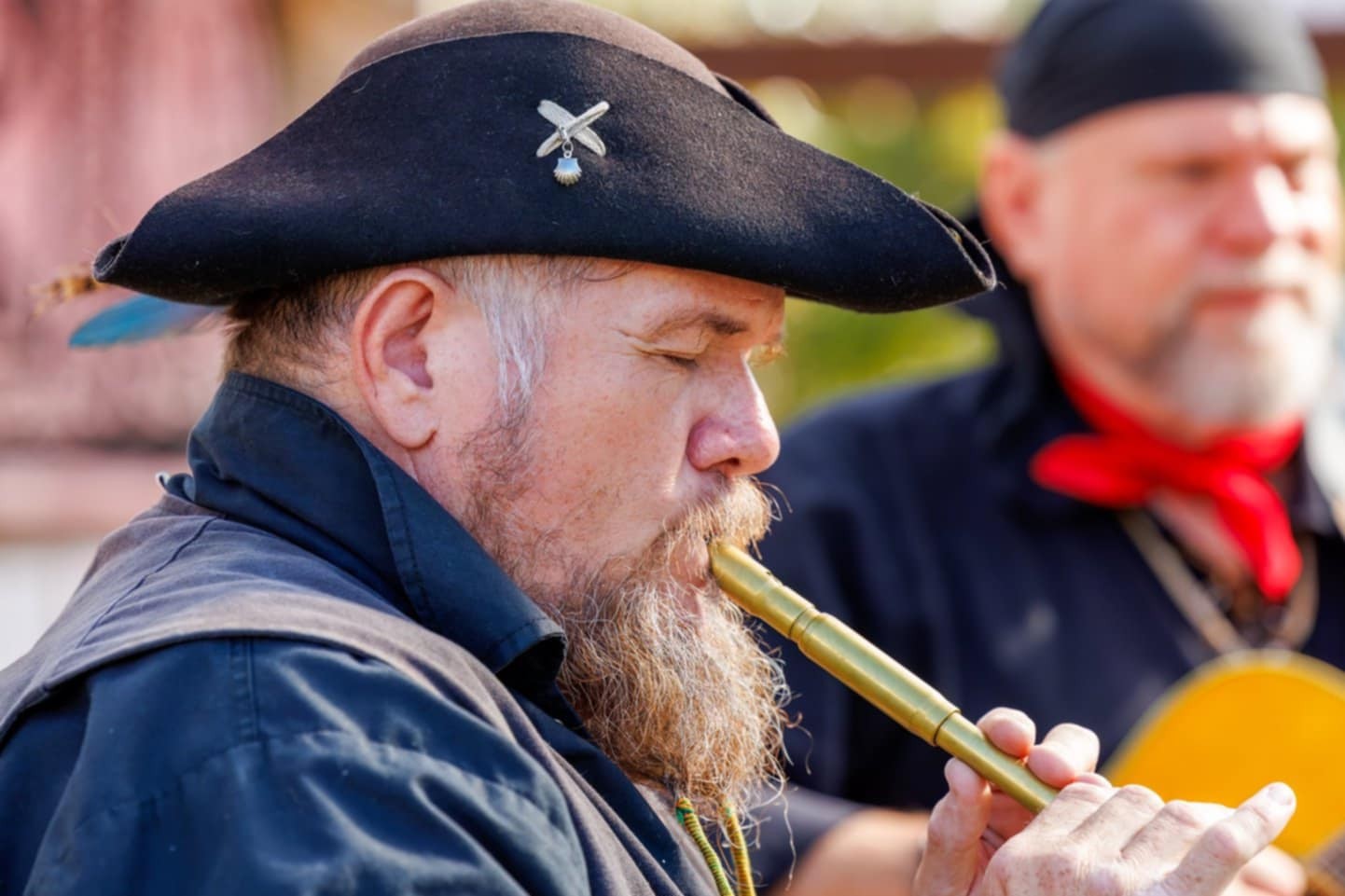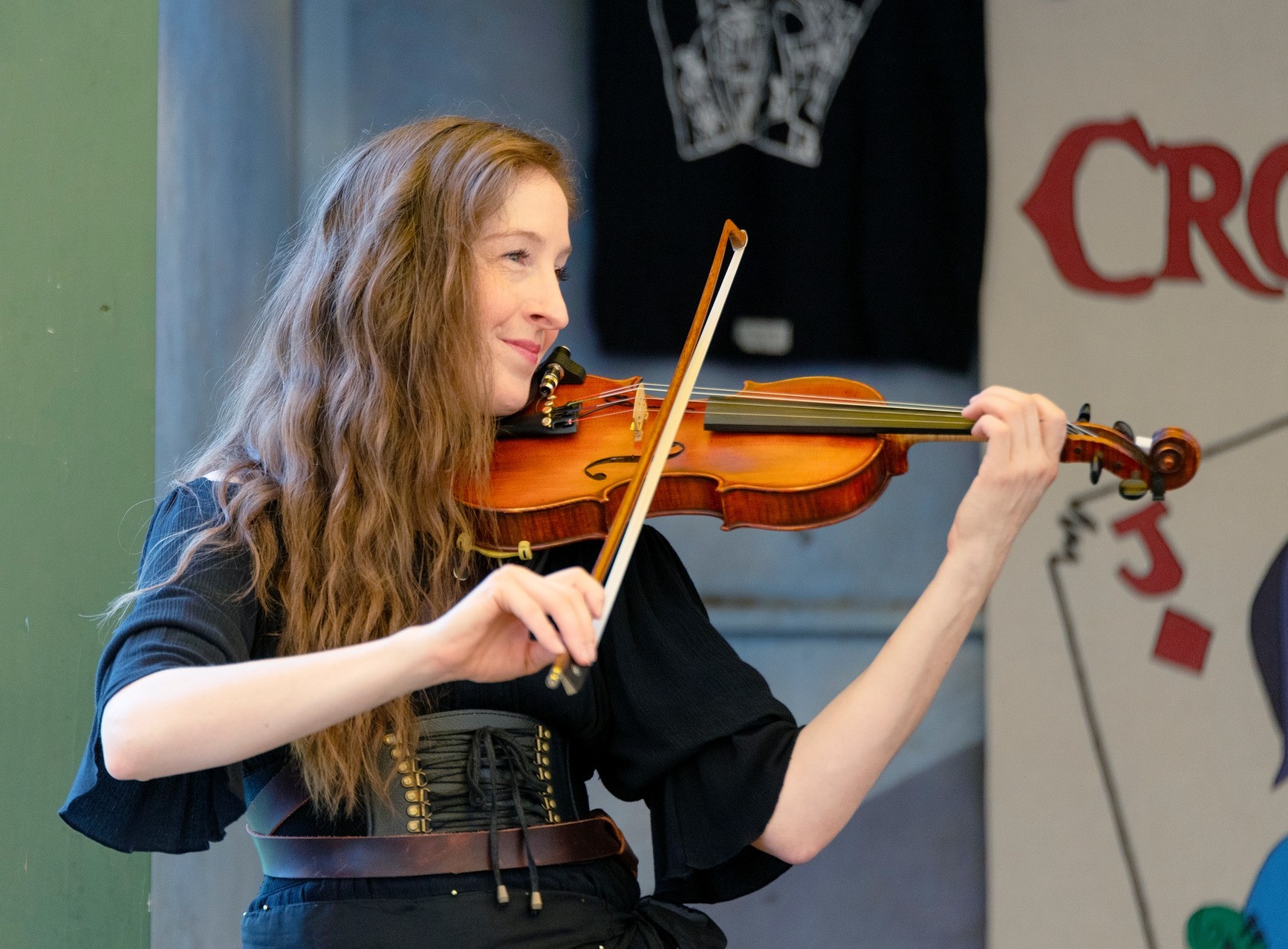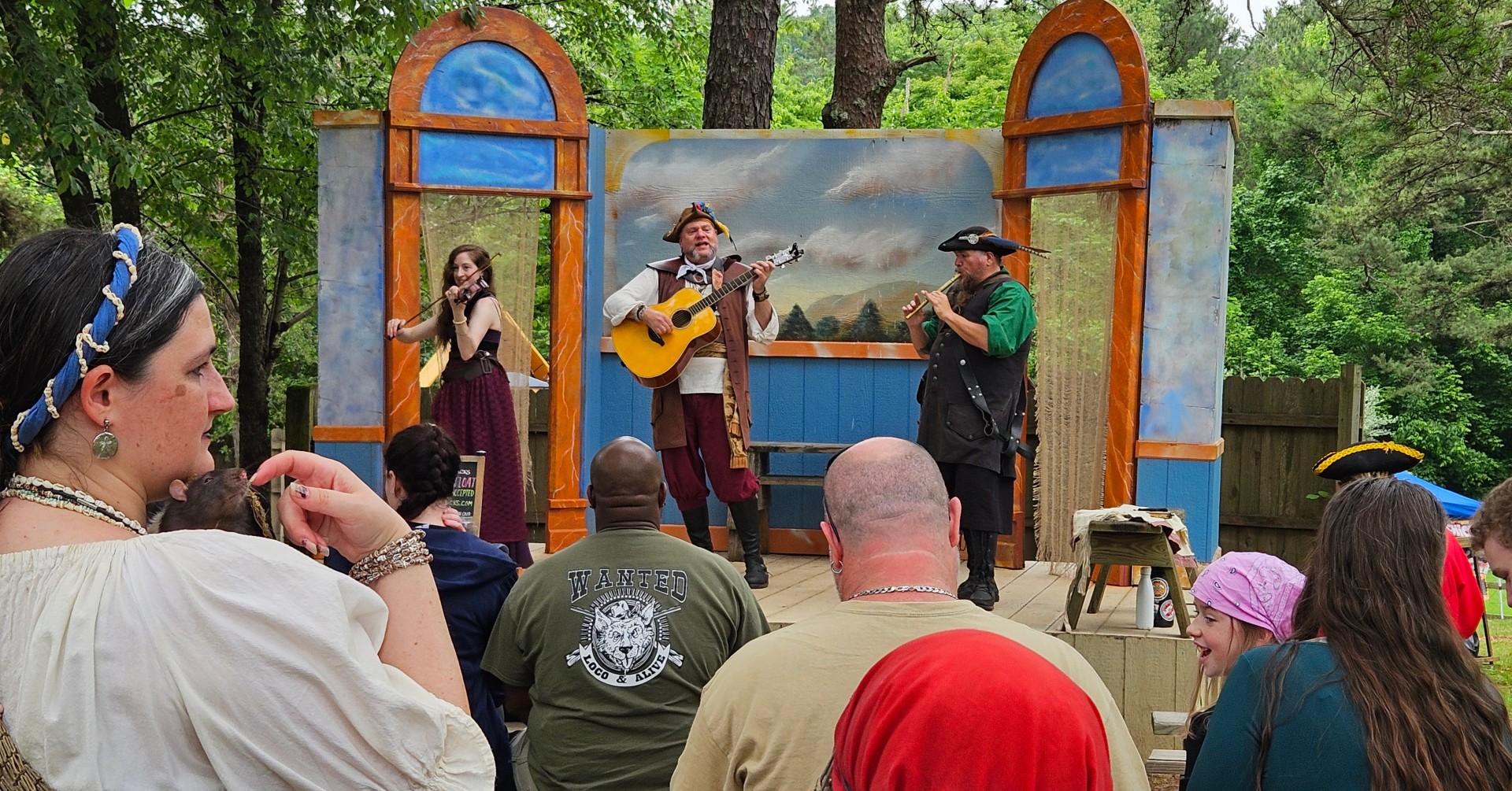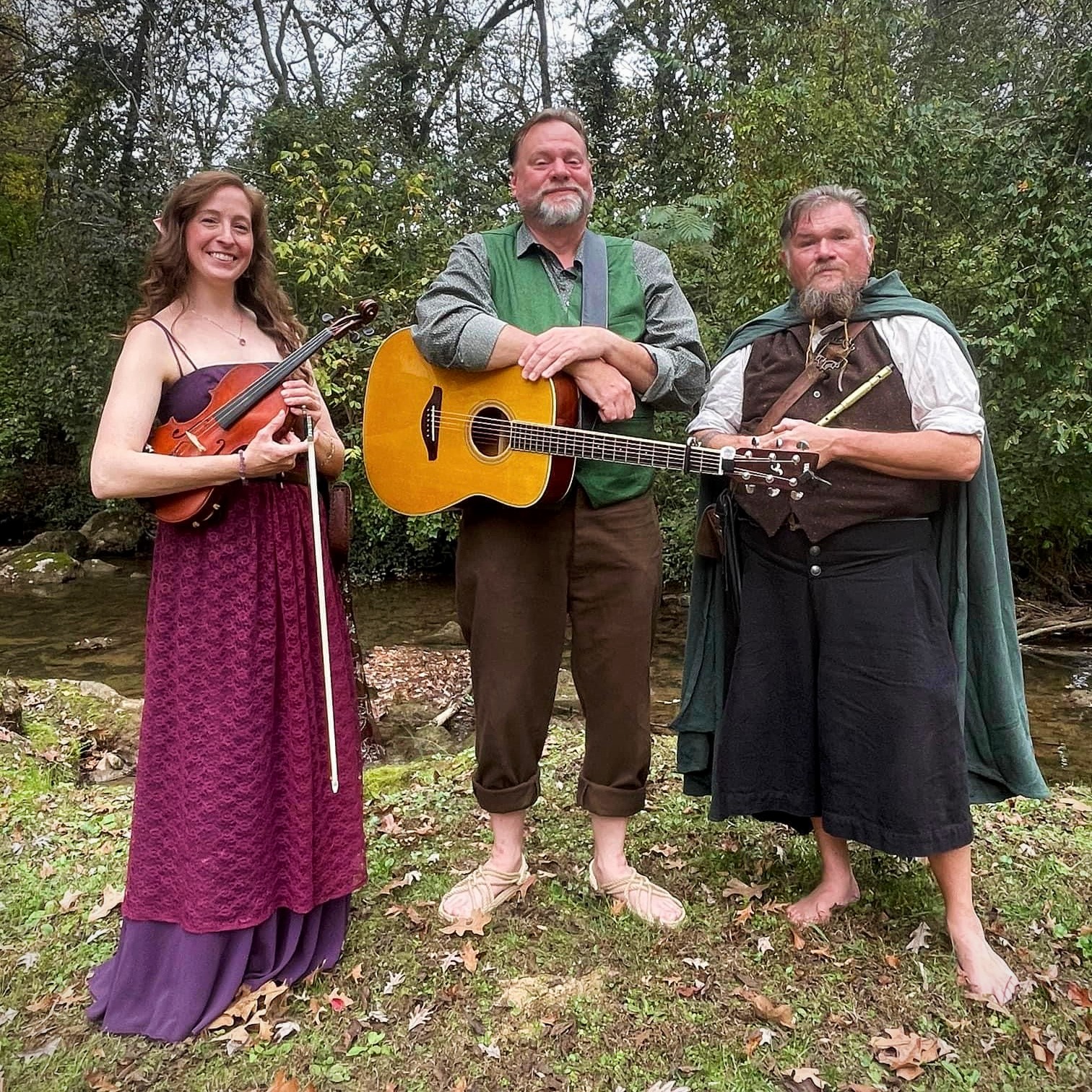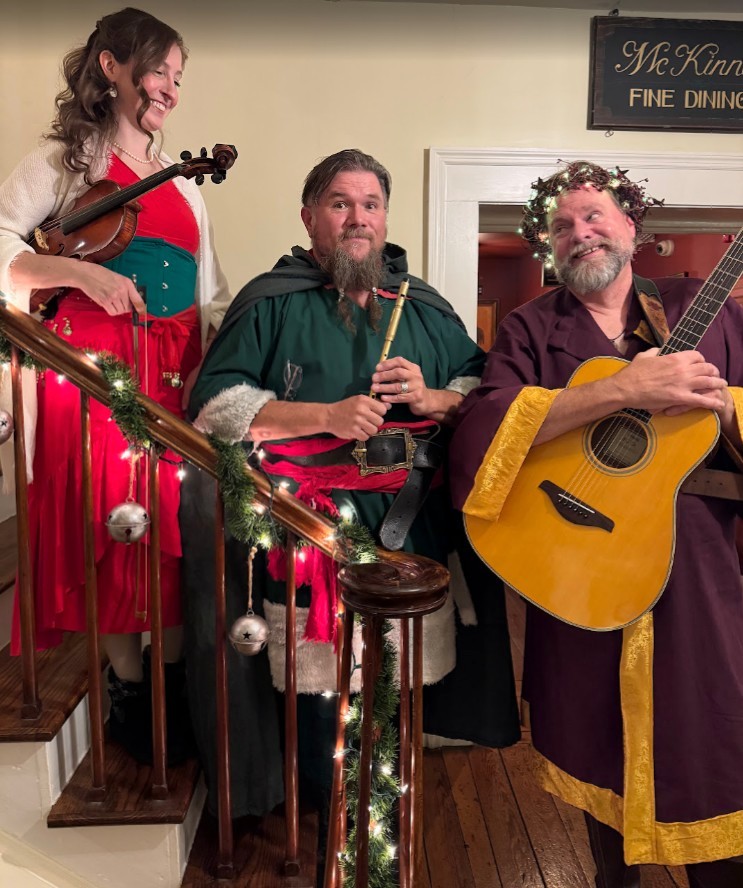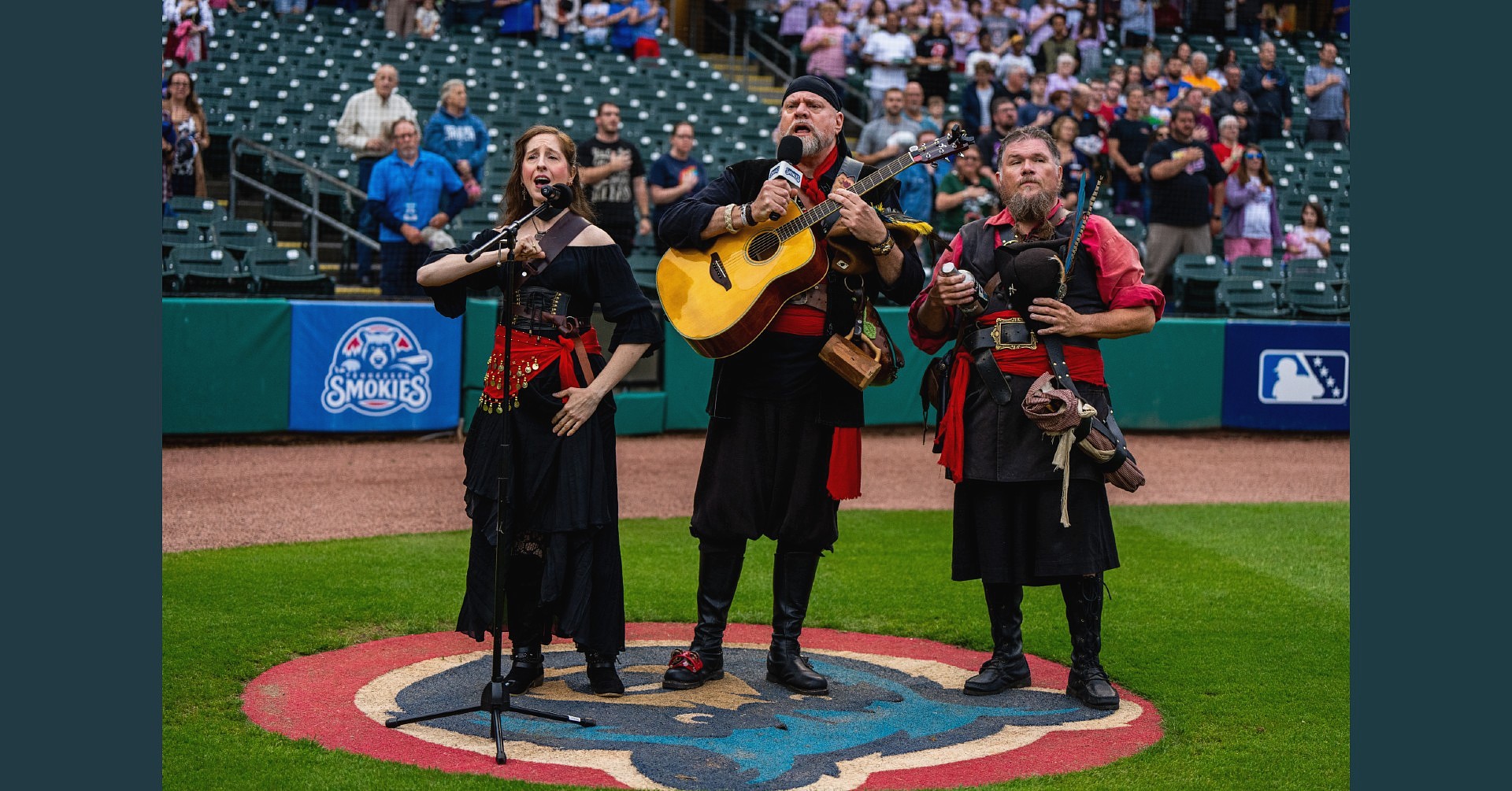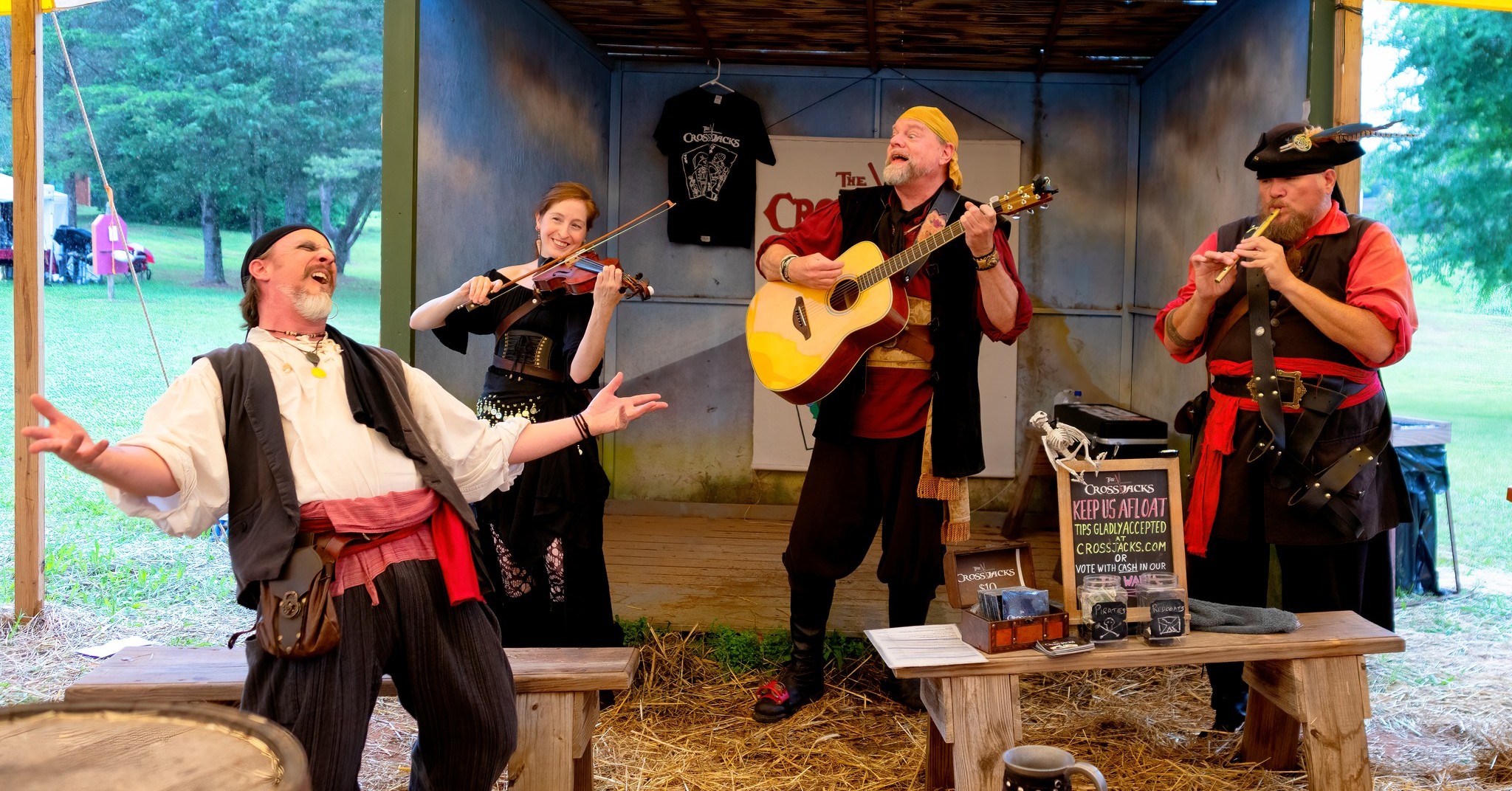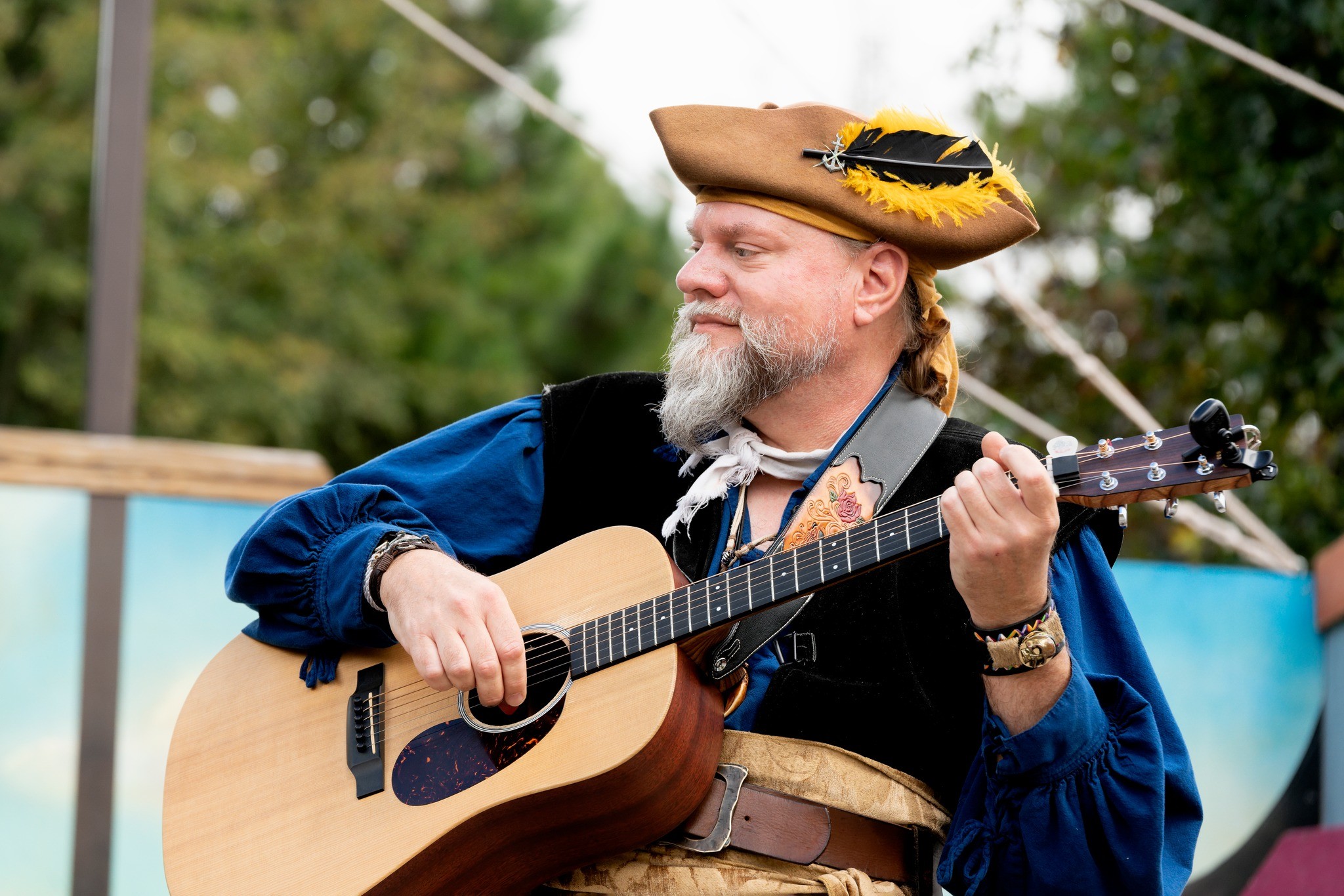

Today we’d like to introduce you to Mark Dudek.
Hi Mark, we’d love for you to start by introducing yourself.
I started playing guitar when I was around fourteen years old, and was pretty active with it up through high school and college. For years afterward I mostly set it aside, until in 2015 I went to my first pirate festival on a whim while vacationing in Beaufort, NC. I was immediately drawn to the musicians there; dressed to the nines as pirates, they were belting out these powerful sea shanties and playing old folk songs that I half knew, and they were having a blast doing it. In fact everyone there was having a blast. I immediately wanted to get involved somehow. I met a lot of people there, some of whom are still friends, and they told me all about the pirate scene. It was all I could think about on the way home, along with the bitter realization that Beaufort and other such events are a long way from Knoxville.
As luck would have it, just a few months later there was a post on Facebook looking for cast members for the first Tennessee Pirate Fest, in Harriman, TN. I was all in. At the time I’d picked up playing a bit of ukulele, and somewhere I’d discovered that I could sing a bit, so I worked up a couple of songs, hoping to perform them as my special talent for the festival. I even dragged my wife along (she was a good sport about it) to the auditions and rehearsals. We paired up with some other musically-inclined cast members and put together a music show. It was my first taste of being on stage. I was morbidly nervous and not very good, but I was hooked. Before it was even over, I was already looking forward to the next Dark Horse Productions event, a Medieval faire in the fall.
I spent that summer in the proverbial woodshed, swapping the ukulele for the old guitar and practicing like mad. I was back for the Tennessee Medieval Faire, and I was a little better. Better still for the spring show. That summer I enlisted my first band mate, fiddler Jesse Wine, and The Crossjacks was born. In the fall of 2017 the owners of the faires in Harriman, Barrie and Lars Paulson, gave us a shot as a professional stage act, a gift I will always be grateful for. That experience opened a lot of doors for us with other events. Soon we were traveling around the surrounding states, performing at small and medium-size faires and making a modest name for ourselves. We played anywhere that would have us, and slowly but surely, in spite of a few changes in band members, we were playing at a very high level. In 2022 we performed at the Maryland Renaissance Faire, which at that time was the second-largest of its kind in the US. I’ll always be proud of that honor.
We’ve branched out considerably over the years, performing at a variety of other events and venues – Celtic, Viking and fantasy festivals, local bars and breweries, weddings, fundraisers and private events. We cover quite a few genres of music, which keeps things fresh for us and doesn’t get us pigeon-holed as any particular type of band. I guess the best label for us is “world folk.” Our wardrobes have branched out accordingly. Kilts, breeches, aprons, vests, slops, tricorn hats, tunics, robes, cloaks, cowls, sashes – you name it, we got it. But we get on stage sometimes in regular old street clothes, too, when it’s called for. We’re nothing if not flexible. “World folk” covers a lot of ground.
Can you talk to us a bit about the challenges and lessons you’ve learned along the way. Looking back would you say it’s been easy or smooth in retrospect?
I think every musician struggles at some point – we’ve certainly had our challenges. One of the biggest has been rebuilding after losing a band member. It’s not easy to find musicians who check all of our boxes, and honestly it is a lot to ask. We play mostly in period garb, which is a non-starter for some. We’re almost always outdoors, sweating in the heat and freezing in the cold. Our repertoire is pretty niche, not mainstream at all, so a new band member is likely going to be faced with learning a lot of unfamiliar material right off the bat. And we travel, so you’re looking at maybe a dozen weekends a year away from home, in addition to local venues. We’re currently at the fourth iteration of The Crossjacks, and each time we lost band members I thought we’d never find replacements. But we did. The right people always seemed to come along eventually. And each band member we’ve lost has left a little of themselves behind. Our first fiddler was steeped in old-time music, and he certainly left his mark on us. We still perform one of the songs that his great uncle wrote. Others were more experienced in the Ren faire arena and guided us toward the songs those audiences want to hear. And we’ve had (and have) some excellent musicians who brought in some serious music knowledge and theory and clever ideas on arrangements. It’s sad and frustrating to lose band mates, and it can seem like the end of the world, but I’ve learned that it’s an opportunity to mix things up and evolve a bit, too.
As you know, we’re big fans of you and your work. For our readers who might not be as familiar what can you tell them about what you do?
I had two main goals when I started The Crossjacks – to present Old World folk music authentically, and to maintain a high level of musicianship. I don’t mean that we play only true period music or that we use period instruments exclusively. It’s more about presenting ourselves in much the same way that the bards and troubadours of old did – with simple acoustic instruments and earnest voices. No loops, backing tracks, effects, auto-tuning or other enhancements, just raw music and emotion. We do sometimes play amplified, but the most we’ll allow is a bit of reverb. The goal is to sound exactly the same when playing on stage for hundreds of people or on a street corner for a handful. I want people to feel like they’ve stepped into a Medieval inn when we perform. We’re not playing a concert – we’re interacting with guests and providing an intimate experience and atmosphere for the event.
I also wanted talented musicians in the band to bring new life into the music without changing its essence. Folk music is generally pretty simple at its core. I wanted to keep it simple but also make it interesting for both the audience and ourselves. We do that by working up unusual and challenging arrangements and adding interesting tunes as breaks in the songs. We also make it a point to have some lesser-known and obscure songs from around the world in our repertoire. It’s a great opportunity for Reagan De Busk (our flutist) and Jessica Brackeen (our violinist) to shine and to perform personal favorites that we might not otherwise be able to work in. I think that’s what sets us apart – we play many songs that have been performed thousands of times at countless festivals, but our arrangements, breaks and instrumental sets will turn even the most jaded of heads. It’s both comfortable for audiences to hear these familiar and much-loved tunes, and exciting for them to experience our unique takes on them.
Alright, so to wrap up, is there anything else you’d like to share with us?
I’d just like to thank and recognize my amazing band mates, Reagan De Busk and Jessica Brackeen (“Black Jack Barty” and “Fae McCann,” respectively, as they’re known on stage, with my stage name being “Henry Culpeper”). It’s their hard work, support, and dedication that make The Crossjacks an ongoing success. I’d also like to thank and recognize my wife Donna, who handles the lion’s share of the business side of the band and takes care of the not-fun backend tasks so we can do what we do.
Contact Info:
- Website: https://www.crossjacks.com
- Instagram: https://www.instagram.com/thecrossjacks
- Facebook: https://www.facebook.com/crossjacks
- Youtube: https://www.youtube.com/@thecrossjacks
- Other: https://www.gigsalad.com/the_crossjacks_knoxville
